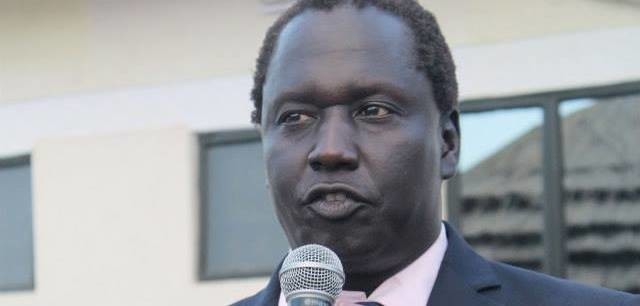Jok Madut Jok, co-founder and former director of the Juba-based Sudd Institute, says recent arbitrary arrests and the disappearances of government critics place the country on a dangerous trajectory threatening peace efforts.
Last week, the South Sudan National Security Service (NSS) arrested the former governor of Northern Bahr el Ghazal State, Kuel Aguer Kuel, and others after signing a declaration demanding civil action to demand political change in the country.
The 11-page document, calling for political change, was signed by the director of the Sudd Institute Abraham Awolich representing the South Sudanese Academia, Rajab Muhandis representing civil society organizations, Kuel Aguer Kuel representing South Sudanese Intellectuals, and Edward Andrew Achiek, representing South Sudanese Diaspora. The other signatories are now in hiding for fear of arrests.
Madut, a sharp government critic, said the series of arrests that took place in the capital, Juba, last weekend, is against the constitution that grants individuals and groups the freedom of expression.
He warned that the continued detention and arrests could lead to civil unrest.
"It requires international effort and pressure for the parties to the revitalized peace agreement to work to provide basic services to the citizens," Madut said.
Madut further said the Sudd Institute remains closed, and its members are now living in fear of arrests.
On July 30, the People's Coalition for Civil Action (PCCA) said it wanted South Sudanese to mobilize and "make their voices heard", warning that if nothing changed, the country could be heading back to war.




